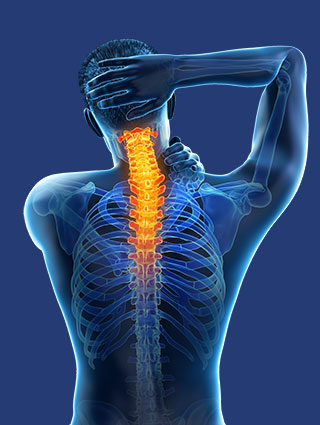Have you ever felt a tingling sensation or numbness that seems to have a mind of its own, wandering from your neck down to your chest or arms? Do you have days working at your desk, and suddenly, a sharp pain shoots through your chest? Has this ever happened to you? Do you find yourself avoiding specific movements because they trigger pain in your neck or chest or radiating down your spine?
Think back to any accidents or injuries you've had. Have you noticed lingering effects, like chest pain or pinched nerve symptoms, that persist long after the initial incident? How has this impacted your recovery and daily activities? These scenarios are not new to an Upper Cervical Chiropractor in Redwood City caring for pinched nerve patients.
Chest pain is a distressing sensation that often sends you spiraling into thoughts of cardiovascular concerns. But have you ever considered the intricate connection between chest pain and pinched nerves? In some cases, there is an often-overlooked link between chest pain and pinched nerves; understanding the causes and symptoms of your pinched nerves can help you find lasting relief.
Pinched nerves are like a highway traffic jam, but instead of cars, the signals in your nerves are stuck. This happens when undue pressure clamps down on a nerve, disrupting its normal function. Pinched nerves can be troublemakers anywhere in your body, brought on by herniated discs, repetitive movements, or even sneaky structural abnormalities.
A pinched nerve in your neck may send pain signals locally and mischievously dispatch them to your chest, a phenomenon known as referred pain. It's like your body's way of prying on you, making pinpointing the natural source of discomfort challenging.
Nerve compression is like sending an invitation to muscle spasms in your chest, mimicking the discomfort of chest muscles going rogue. Your chest houses autonomic nerves responsible for controlling functions like heart rate. A pinched nerve meddling with these autonomic nerves can create a symphony of sensations, leading to chest discomfort or palpitations.
In the intricate web of your body's architecture, the upper cervical region, comprising the topmost bones of the spine, plays a pivotal role. An upper cervical misalignment can profoundly influence the occurrence and persistence of pinched nerves that can set off a chain reaction. Like a domino effect, the imbalance at the top influences the alignment of subsequent vertebrae, leading to increased pressure on nerves branching out from the spinal cord. This cascading impact can result in pinched nerves, mainly when the compression occurs in regions connected to the chest.
Upper cervical misalignment isn't a mysterious occurrence; it often stems from life's wear and tear – be it from injuries, accidents, or the accumulated stress of daily activities. Picture the misalignment as a consequence of life's bumps and jolts, a silent but impactful outcome of the twists and turns you experience.
How does one discern if upper cervical misalignment contributes to pinched nerve woes? Listen to your body's signals. If you're grappling with persistent chest pain, tingling sensations, or unexplained weakness, these might be the whispers of a misalignment issue. It's as if your body is sending an SOS, a plea for realignment and relief.
If you've been dealing with chest pains and other symptoms from pinched nerves, you better get your upper cervical spine checked by an Upper Cervical Chiropractor in Redwood City. Precise adjustments can help restore harmony to the upper cervical spine and bring it back into its rightful place, allowing the body's natural healing mechanisms to kick in. It's a journey toward realignment, unlocking the potential for a life free from the discomfort orchestrated by misaligned elements in the delicate symphony of your spine.
To schedule a complimentary consultation call our Redwood City office at 650-595-0500 or you can also click the button below.
If you are outside of the local area, you can find an Upper Cervical Doctor near you at www.uppercervicalawareness.com

